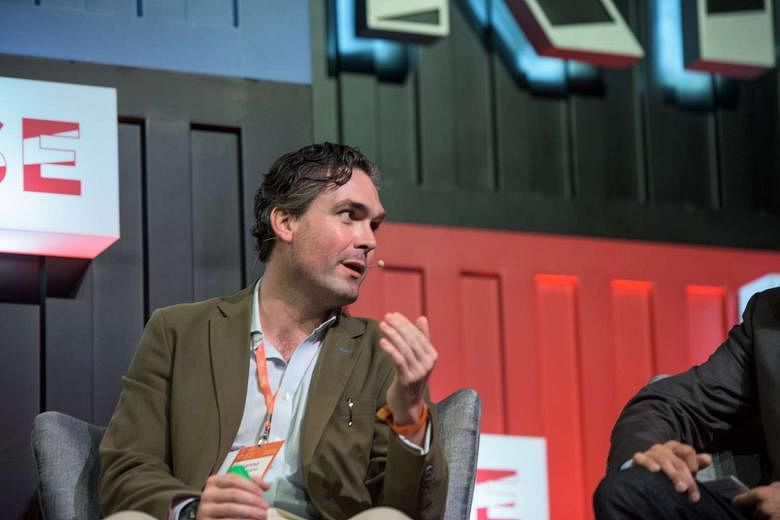German venture capital firm Rocket Internet is so keen on Asia's potential that it plans to launch a start-up every three months.
The company cites the region's growing middle class and high penetration of phones, yet it also sees opportunities in virgin markets such as Myanmar, which allow it to be first-movers in areas like e-commerce, said Asia-Pacific chief executive Hanno Stegmann.
It has already launched Vaniday, which connects beauty and wellness professionals online, in Australia, with plans on the table to start in Singapore, he added.
To be launched in Indonesia soon is the mobile app Lyke, which lets consumers discover fashion and then buy products via their phones.
Singapore-based Mr Stegmann, who has been in the position for three months, told The Straits Times that Rocket has plenty of funds to invest in Asia.
The firm formed a joint venture called Asia Internet Holdings with Qatar's telecom company Ooredoo earlier this year.
It has €200 million (S$322 million) to invest in start-ups over the next two to three years with Rocket taking the lead.
Most of the funds will go into e-commerce and consumer Internet businesses, said Mr Stegmann.
This German firm has a different modus operandi from other venture-capital operations in that it replicates successful business ideas in its portfolio and picks entrepreneurial executives to run them.
Vaniday, for example, was a success in Europe before it was launched in Australia.
"If there are successful start-ups here, we'll introduce them to Europe too," said Mr Stegmann.
Rocket has funded successful e-commerce portals based here such as Lazada and Zalora.
"They have a wealth of experience which they can share with our newer start-ups to improve their chances of success," he added.
New markets like Myanmar are attractive to Rocket because they allow it to be entrenched there first.
It was the first to launch an e-commerce portal in Myanmar, Bangladesh, Pakistan and Nepal. Daraz, as it is called, sells a variety of goods, mostly local but with some international brands, including clothes, home appliances and mobile phones.
"These are virgin markets where the concept of e-commerce is not well known. But there is a demand for goods because of the emergence of a middle class there," said Mr Stegmann.
"Many want international brands which are available only in the big shopping malls in the capital cities. But people living in other towns can't get them, so they turn to online shopping and Daraz."
But Rocket has to invest more in these markets as there is no infrastructure such as credit cards and logistics to support e-commerce.
Mr Stegmann said: "We do things we'll never do in established markets of Australia and Singapore. After customers order online, we call them to confirm their orders. Then we deliver the goods over a few days because transport is a challenge in those countries. And we collect cash on delivery because credit-card penetration is low.
"We invest now so that we can be the No. 1 e-commerce player there when consumers have higher income and the infrastructure improves," he said.


